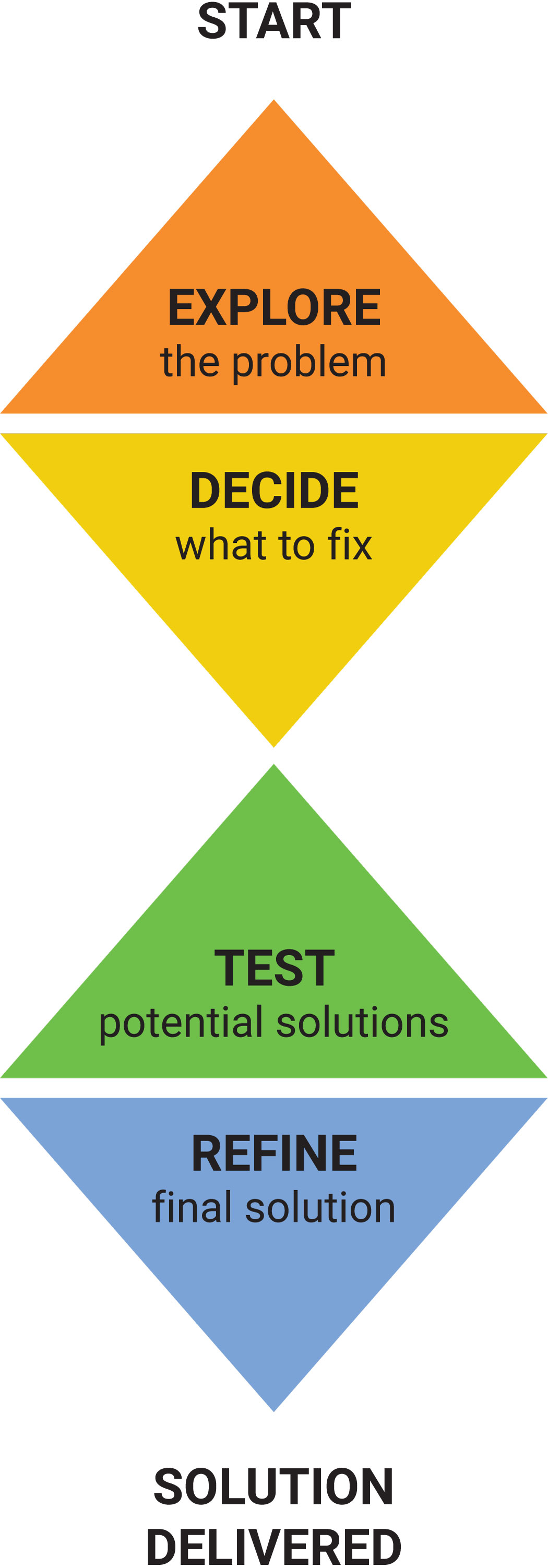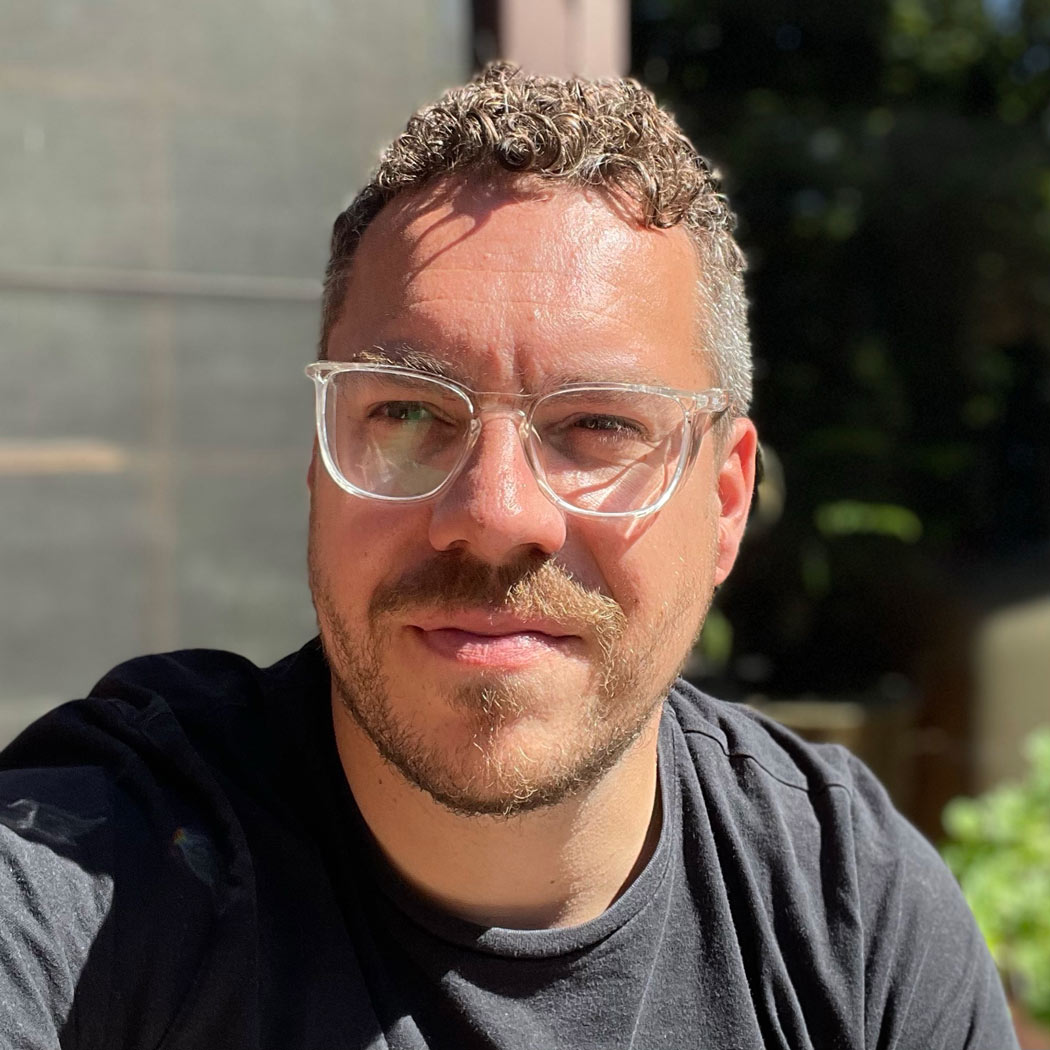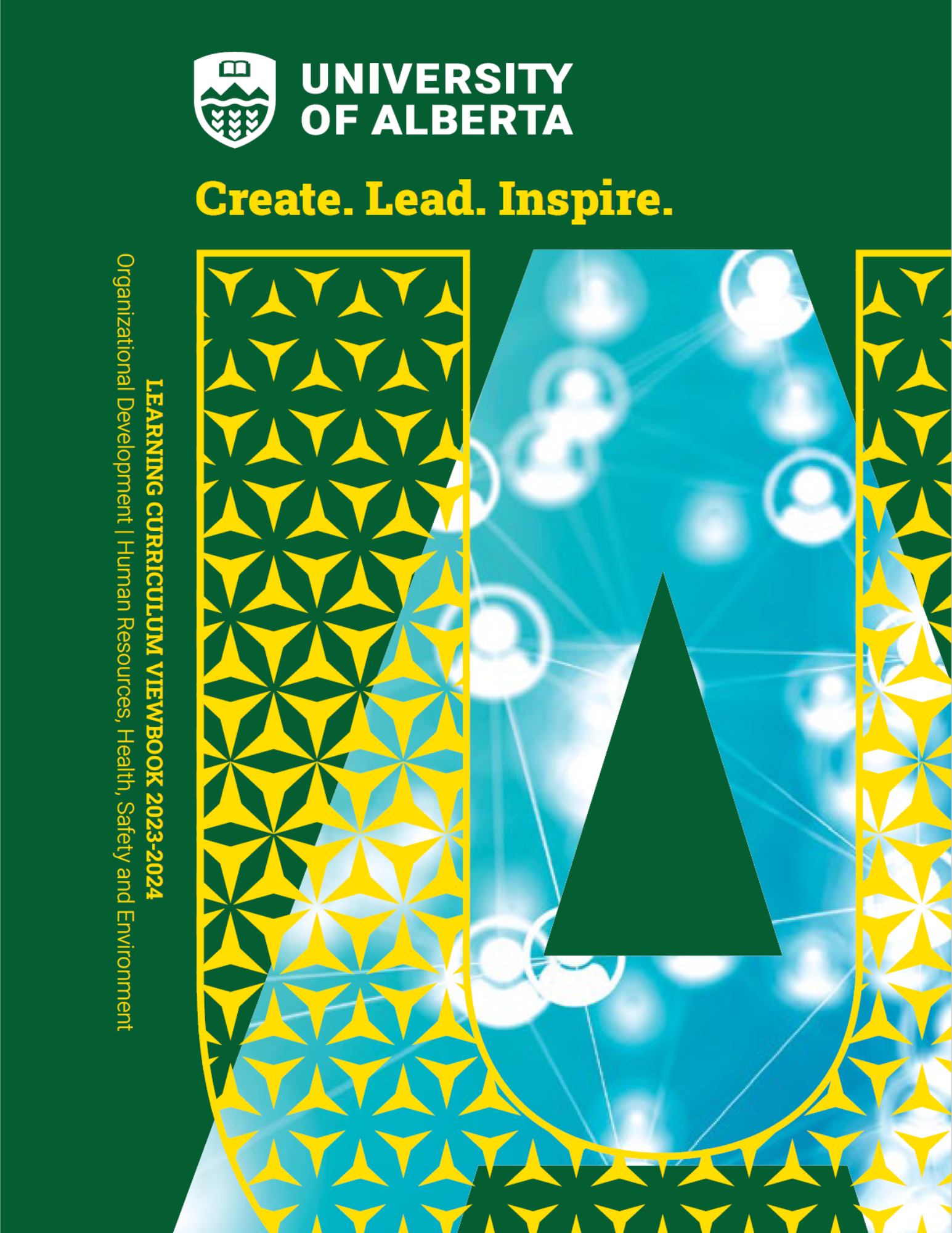Design Thinking Practitioner Program

On This Page
The Design Thinking Practitioner Program empowers teams to drive innovation in their work. Your team will learn cutting-edge design thinking methodologies from industry experts to become equipped with the skills to approach challenges with a fresh perspective. You will build your capacity to empathize with users, define problem statements, brainstorm ideas, prototype solutions and iterate for optimal results. Teams will leave this program with invaluable insights, a collaborative mindset and enhanced ability to problem-solve.
Learning Outcomes
- Explain the Design Thinking Double Diamond Design Process.
- Apply the five phases of the double diamond process to a project.
- Use the tools/techniques for each phase to develop an innovative solution to a problem.
Double Diamond Process


The Double Diamond Process, an established framework within the field of design thinking, offers several distinct advantages when employed for problem-solving and innovation. These benefits stem from its systematic and iterative nature, promoting a comprehensive exploration of problems and generating effective solutions.The Double Diamond Process:
- Builds comprehensive problem understanding.
- Encourages divergent and convergent thinking.
- Facilitates user-centric approach.
- Outlines an iterative and adaptable process.
- Fosters collaboration and interdisciplinary work.
- Reduces the risk of assumptions and biases.
The Double Diamond Process provides problem solvers with a structured and holistic framework that enables them to tackle complex problems effectively. By emphasizing problem understanding, user-centeredness, iteration, collaboration and evidence-based decision-making, this approach enhances the chances of creating innovative, user-focused solutions.
Lead Facilitator
Ben Weinlick, MA (Leadership)
Ben is a dedicated professional driven by the desire to foster collaborative solutions for complex challenges facing individuals, organizations, and communities. Currently serving as the Executive Director of Skills Society, a prominent NGO in Canada, Ben leads the organization’s innovative initiatives and advocacy for the rights and inclusion of people with developmental disabilities. His commitment to person-centered services and social innovation has earned Skills society a reputation for excellence. Over the course of his 20-year career, he has earned multiple prestigious awards, including the MacEwan University distinguished alumni award, the Government of Alberta Community Disability Service Sector Leadership Award, and the Avenue magazine Top 40 under 40 award.
Ben is the founder of an innovation consultancy network called Think Jar Collective, and co-founder of a tangible social innovation that humanizes social service case management called MyCompass Planning.
Program Format
Duration of one to two months, depending on the project scope/size
Total time investment: 23–27 hours over two-month period
- Introduction to human-centred thinking (in-person training).
- Application activities, including field research between training and coaching sessions.
- Three coaching sessions interwoven into the application activities and field research (in-person/virtual coaching).
- Delivery of the final solution to the problem.
Location
The Program will be held at Enterprise Square and on location (if applicable)
Cost
There is a fee associated with this program. Please email Organizational Development for more information. This program fee helps to cover the costs associated with:
- One-day in-person training by an expert in the field.
- Three follow-up coaching sessions (in-person/virtual, 2 hours each).
- Reference materials and learners’ guide.
Apply
This program focuses on a project identified by the team. Please contact the Organizational Development team to discuss your project and to discuss setting up the Design Thinking Practitioner Program for your team org.learning@ualberta.ca.


